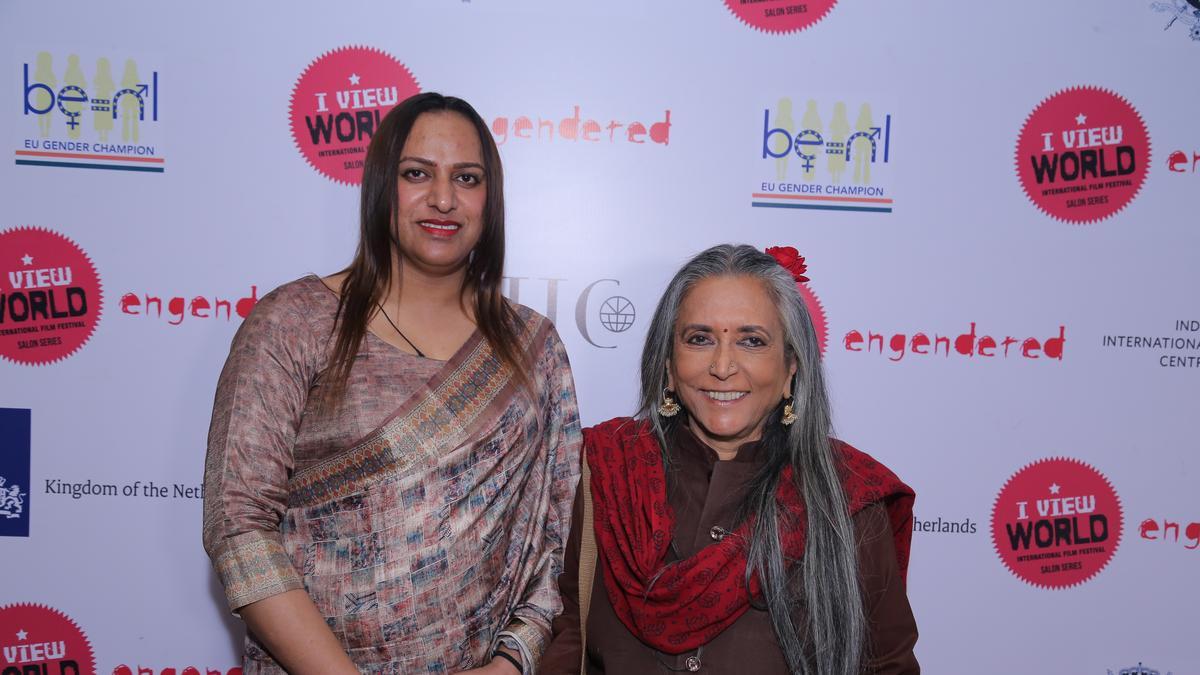
At the celebrated India International Centre located on Lodhi Road, Engendered — a Transnational Arts and Human Rights organisation — hosted the Delhi premiere of the documentary film ‘I Am Sirat.’ Directed by the Academy Award-nominee Deepa Mehta and co-directed by its star, Sirat Taneja, the film features a profound exploration into identity, gender, and acceptance.
The evening saw an illustrious gathering of Delhi’s queer community, avid cinema followers, and influential media personalities. The event was endorsed by the Dutch and Belgian Embassies, adding to its significance. The documentary ‘I Am Sirat’ delves deep into what it means to be a trans individual in contemporary India, chronicling Sirat Taneja’s experiences. The film contrasts Sirat’s life as a trans woman in Delhi with her more traditional role as Aman at home, highlighting her struggle for acceptance in both spheres.
Having already premiered at the Toronto International Film Festival (TIFF), followed by screenings in London, Chandigarh, and Dharamshala, Sirat, who hails from Delhi, finally brought the film to her home city. Reflecting on the TIFF premiere, Sirat was overwhelmed by the avalanche of support she received, which reassured her that she was not alone in her journey. Yet, it was the premiere in Delhi that struck an emotional chord, touching the hearts of her family and those closest to her. For Sirat, the film was primarily about seeking acceptance from her immediate circle.
At the India International Centre, the ‘I Am Sirat’ screening marked Deepa Mehta’s return to documentary filmmaking after over two decades, following her divisive ‘Elements’ trilogy. Sharing her thoughts with The Hindu, Mehta reminisced about her first conversation with Sirat. Sirat had approached her with the hope of narrating her story authentically. Mehta emphasized that the film was a collaborative effort, driven by Sirat’s insistence on sharing her account truthfully. “The film has always been a collaborative effort,” Mehta remarked, recognizing Sirat’s desire to tell her story. Although Mehta was initially reluctant, she realized the importance of Sirat’s unique perspective and the need for a partnership approach, thus avoiding the temptation to dominate the creative process. “I first declined the idea of the film,” Mehta confessed, “until Sirat agreed to do it herself.” This collaborative spirit led to the decision to embrace an unscripted documentary style, allowing Sirat to organically shape the narrative. The resulting film blends Sirat’s personal insights, captured in vertical smartphone footage, with Mehta’s expansive landscape shots for context, providing a visual feast.
Filming came effortlessly to Sirat, who, thanks to her affinity for Instagram Reels, was used to having the camera perpetually in her hand.
. “From dawn till dusk, the camera was my constant companion. Except for when I bathed, of course,” Sirat joked with The Hindu. She explained that the film purposefully avoided moments where she stumbled over English words, acknowledging that it’s never been her strongest suit. Despite being the subject of the film, Sirat advocates for a fresh perspective on trans stories, believing that an outsider’s curiosity can provoke important questions. However, she remains firm that trans roles in cinema should be portrayed by trans actors, emphasizing the wealth of talent within her community. “The trans community is brimming with talent — we have actors, chefs, lawyers, doctors, models and more — and we should all get the same opportunities to get ahead,” Sirat insisted.
In discussing the hurdles faced by Indian filmmakers addressing sensitive cultural issues through Western productions, Mehta dismissed any notion of an easier path. “It’s definitely not,” she said, citing past controversies around her films. Mehta recalled the protests and the hostile reception to her earlier works, notably the burning down of the cinema that first screened her 1996 film, ‘Fire.’ Despite these obstacles, she praised the fearless storytelling emerging from mainstream Indian cinema, highlighting films like Vidhu Vinod Chopra’s ’12 Fail’ and Kiran Rao’s ‘Laapataa Ladies.’ She also expressed curiosity about the India-banned ‘Monkey Man’ and admiration for Dev Patel’s work.
Sirat’s narrative in ‘I Am Sirat’ portrays her journey toward self-realization, which includes obtaining a TG Certificate and finding employment. Yet, her quest for acceptance is deeply tied to her relationship with her conservative mother, who struggles to accept her true identity. Mehta pointed out the film’s underlying theme: a woman’s right to self-determination, stressing that society often labels such acts as selfish only when they involve women.
While the film offers an intriguing glimpse into Sirat’s life, it occasionally struggles with pacing, particularly in the scenes involving her interactions with her mother. Despite this, Sirat’s ceaseless optimism and humor shine through. Amidst the supportive applause from the audience, Sirat felt buoyed by confidence for the path ahead. Her story continues to unfold as she heads to the Kashish Pride Film Festival in Mumbai, with new projects on the horizon. When asked about her feelings after courageously revealing her true self to her family, Sirat’s response was quick and spirited: “Hot, sexy, and beautiful.”












